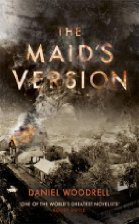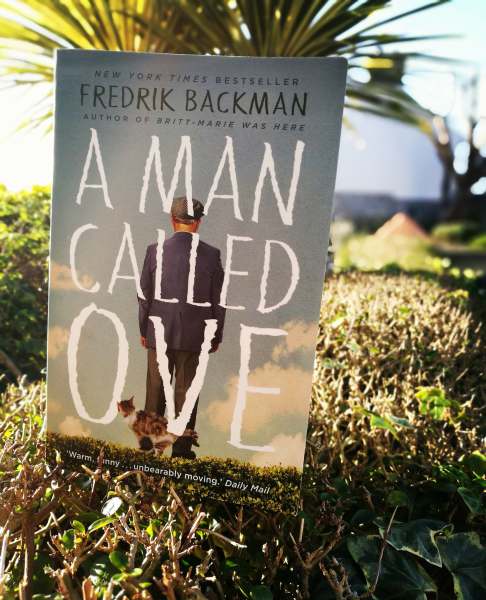
Read 17/09/2017-20/09/2017
Rating: 3 stars
Read for the Reader’s Room Road Trip Challenge
According to a quote from Roddy Doyle on the front cover of The Maid’s Version, Daniel Woodrell is one of the world’s greatest novelists. I hadn’t heard of him until Missouri came up on the US Road Trip Challenge and I was hunting around for a book set there or written by a local author. I discovered that he wrote Winter’s Bone, on which the film I’ve started watching a couple of times but never finished is based. My local library doesn’t have its own copy of Winter’s Bone, so I borrowed The Maid’s Version instead. I found the opening scenes of the film version of Winter’s Bone visually dark and grey, so I was expecting The Maid’s Version to be the same. I was wrong. It started muted but, as it progressed, there were bursts of colour.
At first, I didn’t know what to make of the novel. Sometimes the writing made me think of William Faulkner, with its roaming words tumbling over each other in an eagerness to say everything and nothing. Other times the writing made me think that Woodrell was overly pleased with himself and the style of his prose.
I didn’t properly care about the characters for almost half of the book. They felt remote, more like types of people than actual people. The descriptions of grinding poverty and abuse at the hands of drunk men felt more as though they were selected from a primer of Ozark life in the first half of the twentieth century, and less as though they were anything the author really understood as real.
It should have been entirely my cup of tea. It’s set in a period of history that I like. It has a mystery at its centre. It has family rivalries and complexities. It should have thrilled me like O’Connor, McCullers, Faulkner and Steinbeck thrill me. For a good 70 pages, however, it lacked energy and emotion. It was a study rather than a telling. Where the authors on that list, who make up a good proportion of my favourite American authors, wrote from experience and direct observation, Woodrell didn’t seem to have the same immediacy of witness.
It felt like I fell into the rhythm of Woodrell’s writing around the halfway point, or perhaps his style developed into something that felt less self-aware. Something made the story easier to read. Perhaps it found its focus in the narrator’s family history and the terrible accident that impacted upon the family in different ways. The strength of the story lay in the experiences of the narrator’s father. Reading the back blurb about the author, it was clear that this character’s experiences mirrored to an extent those of Woodrell, providing that immediacy of witness it felt he lacked elsewhere.
Gradually, as Woodrell skirted around the edges of who might have been responsible for the central mystery, the character studies grew more interesting. Reformed hoodlum Freddy Poltz and itinerant hellfire preacher Isaiah Willard were the first characters I found to be entertainingly and exaggeratedly described. They were the first bursts of colour in what became a gentle incline of increasing candour.
I grew to love the story, and to feel the similarities with Faulkner, O’Connor, McCullers and Steinbeck less as triggers that made me wish I was reading their books and more as a continuation of those authors’ ways of interpreting the world and the people in it. A novel of roughly two halves, then. I’m not entirely convinced that Roddy Doyle is right, I need to read something else of Woodrell’s to be sure that he’s one of the greatest novelists in the world.
Advertisements Share this:




